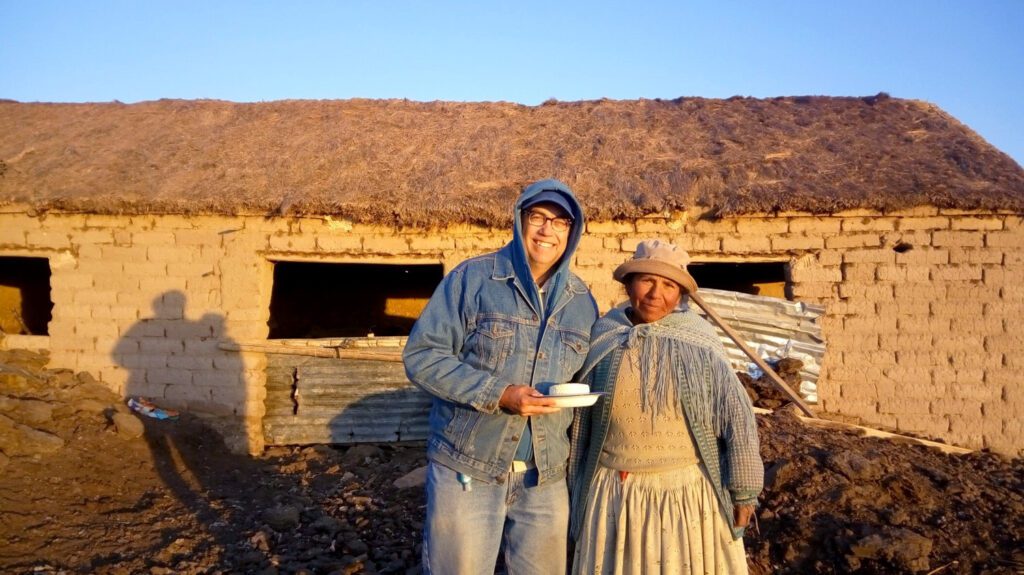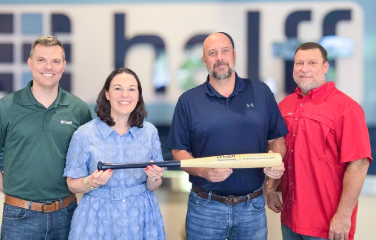Bringing Clean Water to Those in Need
Engineers Week provides an opportunity to showcase how engineers make a difference in our world.
Volunteers serving in the Engineers Without Borders program live by that guiding principle every day.
The organization, which was officially founded in 2002 by Dr. Bernard Amadei in Boulder, Colorado, is engineering 651 current projects in 45 countries worldwide. More than 14,100 members are lending their passion and expertise to change the world.
Engineers Without Borders (EWB) partners with communities in some of the world’s toughest places to provide basic human needs. Sometimes these communities have the resources, but they lack the technical skills to design effective and sustainable solutions.
That’s where an engineer’s mind—and heart—come into play.
“These areas—if you ever go to a third-world country—it can be a pretty tough existence,” said Senior Vice President and Transportation Practice Leader Matt Craig.
Matt has served with EWB’s North Texas chapter since 2007. The group’s current project is to provide access to potable water year-round to a rural community of 400 people in Culli Culli Alto, Bolivia, which is about 70 miles southeast of the capital of La Paz. More than half the population of Culli Culli Alto doesn’t have access to drinkable water during the dry season, and the wells currently in use are contaminated and don’t meet Bolivian and World Health Organization water quality standards.
“Farmers out there have no water. They are living off the land very, very simply,” Matt said. “Having visited there a couple of times, I know that running water sure is a nice convenience. It’s more than a convenience—it’s a necessity.
“So I heard about this group, and I wanted to do more.”
Halff Senior Vice President Matt Craig visits with a Culli Culli Alto resident. “You get more out of it, I think, when you are actively involved in it,” Matt says of the project in Bolivia.
Assessment and Execution
Matt’s wife lived in Bolivia for close to two years in the mid-1990s, performing her master’s field research in cultural anthropology. She resided with a family outside a rural community. It was that connection that ultimately led Matt to EWB.
“The family’s youngest son—I helped him come to the U.S. and go to school in the mid-2000s,” Matt said. “He was going to school at UT-Arlington, and I saw something about EWB there. I learned about what they were doing, and I thought it was a great thing.”
The North Texas chapter, for which Matt is the current vice president, has been working with Engineers in Action—a nonprofit organization that identifies, facilitates and prioritizes needs such as the Culli Culli Alto water project. The scope of work includes restoring an existing inoperable well to use as the primary source of water and to build water storage and distribution infrastructure.
Matt described the project in a three-step process.
The first step was an assessment trip. The group performed health and water surveys in as many of the community’s 100 residences as possible—an area that covers 4 miles by 2 miles. Most of the families maintained farms. The North Texas group surveyed how many people lived in each home and how many animals they had to gain an overall understanding of what the water needs were. They also surveyed residents for their current health conditions and potential illnesses related to water quality. It set a baseline for achieving a workable solution.
“The benefit is two-fold,” Matt said of the interaction with Culli Culli Alto residents. “I think it’s as much a benefit for our folks going there to better appreciate what we have and to understand the fundamentals of infrastructure and what we have to do … but also understand the culture aspect of it.”
The North Texas chapter has been working through the alternatives and design process, plus fundraising, so it can begin the second step: implementation. Matt said the community is required to bring 5 percent of the project costs. In Bolivia, that supplement primarily comes from the government, which helps purchase construction materials. This project will require several implementation trips.
The final step is monitoring the built system for five years to ensure it continues to function properly.
“The work we do—the engineering is not that technical, per se, but it still helps some of the younger folks get outside of their comfort level or understanding,” Matt said. “We still learn about the overall pieces that go into a project.
“The overall benefit of what we do … it can have a lot of impact on a community.”
A Lasting Impact
When complete, the project will help improve the quality of life for the people of Culli Culli Alto—not just giving them a basic necessity, but also providing positive indirect benefits such as increased economic activity in the area.
It’s one remarkable example of how engineers truly make a difference in the world today.
“There’s a great need around the world,” Matt said. “From the Christian perspective, ‘To whom much is given, much will be required.’ We’ve got so much here. We take that for granted, and we need to share it with those around the world where we can. This is a good avenue for doing that.
“You get more out of it, I think, when you are actively involved in it. You can see your actual work and abilities put in play to benefit somebody in great need.”
If you are interested in getting involved with the Engineers Without Borders North Texas chapter, write to ewb.northtexasp@gmail.com.




